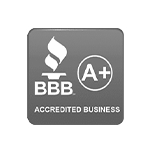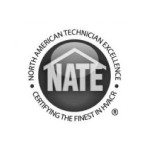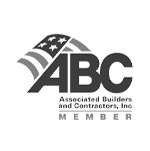Water Conditioning Services in Lancaster, PA
Serving Lancaster & York County for Over 100 Years
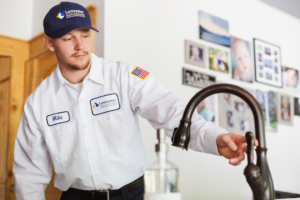
If you want to enjoy the benefits of soft and filtered water, we can install state-of-the-art equipment that will keep your home’s plumbing system fully functional and free of hard water.
Call our Lancaster water conditioning experts today at (717) 207-8198 to learn how our services could benefit you.
Efficient Water Softening Services to Meet Your Home’s Needs
Water conditioning is a process that removes minerals from your home’s water supply. These minerals, such as calcium, fluoride, zinc, and magnesium, may cause sediment to build up in your plumbing system.
Over time, this buildup could lead to clogs and other plumbing problems due to hard water. By using a high-quality water softener, you can protect your home’s water lines from sediment buildup.
A water softener will allow your water heater and water-using appliances to run more efficiently. This will help you save money on utility bills each month. Hard water also leaves stains on dishes and can make your skin and hair feel dry and rough. With our water conditioning systems, you can enjoy clean, fresh, and soft water in your home.
Our skilled plumbing team can repair, replace, and maintain a variety of water conditioning products, including:
- Water softeners
- Reverse osmosis systems
- Whole-house filters
- Carbon filters
- Sediment filters
- Ultra-violet purifiers
- Acid neutralizer
We also provide free water testing for hardness and pH balance, as well as bacteria testing to ensure your water is clean and safe. Our Lancaster County plumbers will also give you a free estimate on installations of salt delivery.
We’re dedicated to leaving you completely satisfied and will work hard to provide a water softener system in Lancaster, PA, that meets your specific needs.
Call Lancaster Plumbing, Heating, Cooling & Electrical at (717) 207-8198 to schedule a consultation.
What Are the Benefits of a Water Conditioner?
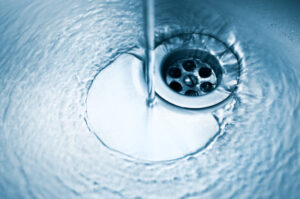
Over time, the more you drink these harmful substances, the more likely they’ll cause organ problems and digestive issues. You may also acquire diseases from bacteria or viruses found in your drinking water.
To avoid these health concerns and enjoy a long-lasting plumbing system, it’s important to install and maintain a professional water conditioning and filtration system.
Having a water softener system installed will also leave you with healthier, softer skin and hair, softer clothes from your washing machine, better-tasting drinking water, cleaner plumbing and appliance pipes, and overall a healthier and cleaner environment.
Choose Lancaster Plumbing, Heating, Cooling & Electrical for Your Water Conditioning Needs

If you’re tired of having hard water stains on your glassware, or you want your skin to feel soft again, or you don’t like the taste of the water coming from your faucet, we can install a durable water softener in your home.
We can also install, repair, and maintain a variety of water filtration systems to keep your home’s water supply clean and fresh. Our Lancaster plumbing technicians are trained and certified and will provide timely and courteous services for your convenience.
Call (717) 207-8198 today for an experienced plumber based in East Petersburg, PA, who can dramatically improve the water quality in your home.















